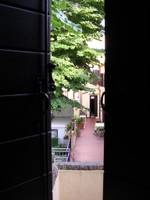
About the Catholica
Previous Posts
Toscana and the Refuges of LightThe Anti-Narnia
Ballad of the White Horse
Red and Black (at the OCP Cafe)
Dvorâk
Polyphonic Bliss
Best. Motet. Ever.
Syndication

News
Seattle CatholicCatholic Exchange
Crunchy Catholicism
Being CatholicCaelum Et Terra
Mystical Rose Herbals
Mary Gardens
Tridentine Tiramisú

St-Martin de Bréthencourt
Chartres Pilgrimage
(muchas fotos!)
Campos Photos
LMSEW Photos
Catholic Artists Today

Official Passion Site
Smallpax Guild
Nicholas Wilton Music
StudiObrien
Via Rosa Rosaries
Regina Doman
Poetry of Pavel Chichikov
Free Literature On the Web

Project Gutenberg
G.K. Chesterton
On Nothing
On Something
First and Last
Europe and the Faith
Belloc - Poetry
More Belloc Poetry
John Henry Newman
Christopher Dawson
Frederico GarcÃa Lorca
Tolkien

Romantic &
Imaginative Theology
Council of Elrond
Anke Eissmann's Art
Angels and Elves
Christianity and Middle Earth
Coulombe Essays
Ardalambion
Gwaith i Pheddain
Arthrand Board
Crazy-Go-Nuts
Homestar RunnerStrindberg & Helium
SuperPope Anime
The Onion Dome
Blogs I Like

Alle Psalite
Andrew Cusack
Angry Twins
Cacciaguida
Church of the Masses
Curt Jester
Dappled Things
Devout Life
Dignare Me Laudare Te
Erik's Rants & Recipes
Flos Carmeli
Give Tongue
Hallowed Ground
The Idyllist
Inn at the End of the World
Jade's Trick
Jelly-Pinched Theatre
Old Oligarch
Open Book
Orthonormal Basis
Sancta Sanctis
Secret Agent Man
Shrine of the Holy Whapping
Video Meliora
Vivid
The Western Confucian
Zadok the Roman
Christendom Blogs
Charlemagne's PalaceThe Christendom Commons
Meet Virginia
Destination: Order
Enchiridion
Fiddleback Fever
JulesArts
Midnight Radio
Nota Bene
¿Qué?
somewhatlost
This Red Rock
West of the Moon
Vestal Morons
Zucchero
<< # St. Blog's Parish ? >>

Archives
- April 2004
- May 2004
- June 2004
- July 2004
- August 2004
- September 2004
- October 2004
- November 2004
- December 2004
- January 2005
- February 2005
- March 2005
- April 2005
- May 2005
- June 2005
- July 2005
- August 2005
- September 2005
- October 2005
- November 2005
- December 2005
- January 2006
- February 2006
- March 2006
- April 2006
- May 2006
- June 2006
- August 2006
- September 2006
- January 2007
- February 2007
- July 2007
Kiss me, I'm Catholic.
Thursday, July 05, 2007
The Last Post.
Three and a half years is a pretty good run for a blog, I think. Looking through my archives, I'm struck by how much of my life is recorded there. And by how many fascinating and friendly people commented on my posts. I started Basia Me back in high school, and now I can see grad school on the horizon. It seems like a very short time when compressed into the archives of a blog. And yet I managed to do a lot of growing up in those months.
I know that some of you will be sad to see Basia Me end. I'm sad about it too, but I just can't keep up this particular blog anymore. For some time now I've been wanting to write a more focused blog, because all of my inspiration these days is coming from poetry and the discussion of poetry, and I always held myself back from narrowing Basia Me. But now I feel burnt out on this blog. I need a change, irrational as that may sound.
So, without further hemming and hawing, here's my new blog:
For Keats' Sake!
The name isn't just a cute pun. This blog is my crie de cour in defense of beauty and in defiance of 99% of the poetry that has been scribbled these last forty years. Some of you may remember the mouse poem in America and the contest it spawned. Well, this is the kind of stuff that keeps me up at night. I can either start writing about it, or suffer a breakdown of Eliotian proportions. Seriously, there's a reason why normal people find the mass of today's poetry to be about as enjoyable as a sharp stick in the eye, and it's not because all the good poets have been thrown in a gulag by Bush, or because modern poets are brilliant beyond mortal comprehension, or because there's something in the water nowadays that prevents us from writing anything musical, intuitive, or intricately made. Though I recently read an article in Poetry that came close to saying that:
Without uncritically assuming that this is what the author really believes, I will respond by saying that if I believed that proposition were true, I would have to lie down and die. The rich music of verse, from inspired Isaiah to Auden at his most urbane and flippant, is what makes a poem a poem. Keats said that the poetry of earth was never dead, and meant that nature is always full of purpose and music; but I will be a plodder and have it mean that poetry has been with us from the beginning and will only leave us when we leave it.
The world is wide and poetry surely thrives in many places outside of America, like the grasshoppers singing in one hemisphere when winter has silenced them in the other. But all my hopes and concerns lie in the Anglosphere, and I'm very interested in the fate of that hardy little cricket.
So here goes. Father Hopkins, pray for me!
|
I know that some of you will be sad to see Basia Me end. I'm sad about it too, but I just can't keep up this particular blog anymore. For some time now I've been wanting to write a more focused blog, because all of my inspiration these days is coming from poetry and the discussion of poetry, and I always held myself back from narrowing Basia Me. But now I feel burnt out on this blog. I need a change, irrational as that may sound.
So, without further hemming and hawing, here's my new blog:
For Keats' Sake!
The name isn't just a cute pun. This blog is my crie de cour in defense of beauty and in defiance of 99% of the poetry that has been scribbled these last forty years. Some of you may remember the mouse poem in America and the contest it spawned. Well, this is the kind of stuff that keeps me up at night. I can either start writing about it, or suffer a breakdown of Eliotian proportions. Seriously, there's a reason why normal people find the mass of today's poetry to be about as enjoyable as a sharp stick in the eye, and it's not because all the good poets have been thrown in a gulag by Bush, or because modern poets are brilliant beyond mortal comprehension, or because there's something in the water nowadays that prevents us from writing anything musical, intuitive, or intricately made. Though I recently read an article in Poetry that came close to saying that:
Fifty years on, it may be impossible to write well in the exalted language that intoxicated Sylvia Plath (and me) in the days when poets aspired to rise through the magic of words to a level above ordinary life.
Without uncritically assuming that this is what the author really believes, I will respond by saying that if I believed that proposition were true, I would have to lie down and die. The rich music of verse, from inspired Isaiah to Auden at his most urbane and flippant, is what makes a poem a poem. Keats said that the poetry of earth was never dead, and meant that nature is always full of purpose and music; but I will be a plodder and have it mean that poetry has been with us from the beginning and will only leave us when we leave it.
The poetry of earth is ceasing never:
On a lone winter evening, when the frost
Has wrought a silence, from the stove there shrills
The Cricket’s song, in warmth increasing ever,
And seems to one in drowsiness half lost,
The Grasshopper’s among some grassy hills.
The world is wide and poetry surely thrives in many places outside of America, like the grasshoppers singing in one hemisphere when winter has silenced them in the other. But all my hopes and concerns lie in the Anglosphere, and I'm very interested in the fate of that hardy little cricket.
So here goes. Father Hopkins, pray for me!

